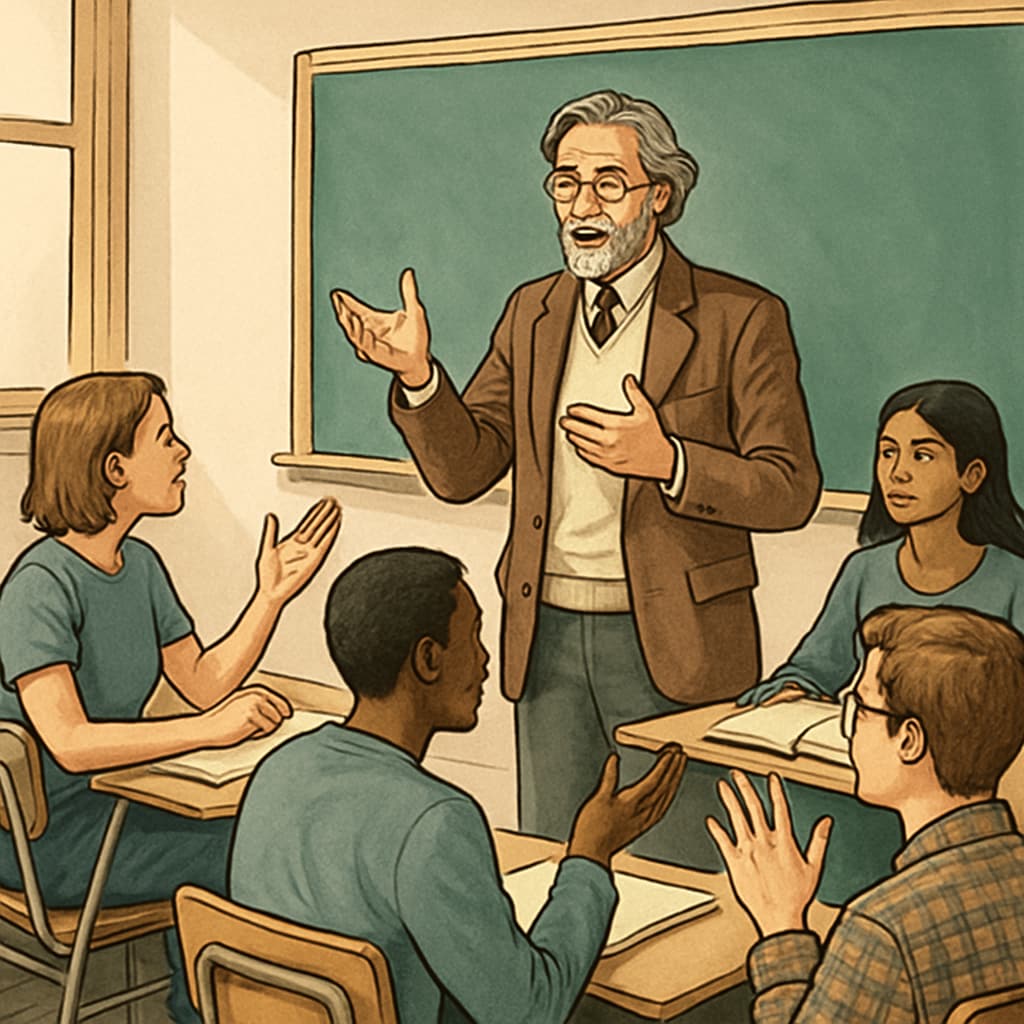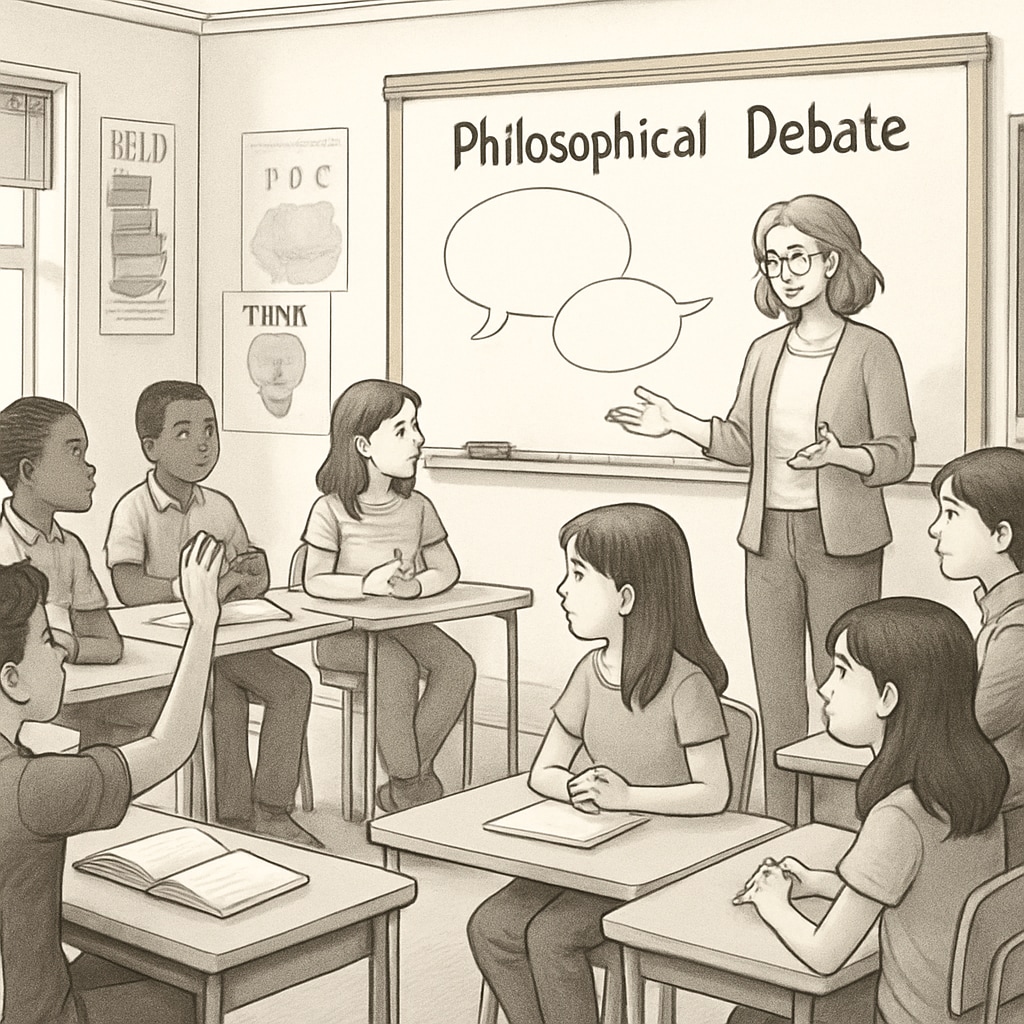Philosophy teachers, social experiment, volunteers—three concepts coming together in an ambitious initiative to revolutionize K12 education. A new social experiment seeks to recruit philosophy professionals from universities and colleges to introduce students to the art of philosophical inquiry. This volunteer-based project aims to foster critical thinking and judgment in young minds by integrating philosophy into traditional classroom settings.
The Vision: Bringing Philosophical Thinking to K12 Classrooms
Philosophy has long been regarded as a discipline that sharpens reasoning, promotes ethical deliberation, and enhances the ability to view problems from multiple perspectives. This experiment seeks to leverage these attributes by embedding philosophical thinking into K12 education. By engaging students in discussions about universal questions, such as “What is truth?” or “What makes a decision ethical?”, the program hopes to cultivate intellectual curiosity and resilience to handle life’s complexities.
For example, students might explore the principles of deductive reasoning or analyze moral dilemmas using frameworks like the Golden Rule or utilitarianism. These exercises not only improve academic skills but also nurture empathy and emotional intelligence.

Why Philosophy Matters in Early Education
In an increasingly polarized and fast-changing world, the ability to think critically is more valuable than ever. According to educational studies, early exposure to philosophical thinking can significantly enhance problem-solving abilities, emotional regulation, and interpersonal communication. Philosophy teaches students how to ask the right questions, challenge assumptions, and make thoughtful decisions—a skill set that is vital for personal and professional success.
Furthermore, introducing philosophy in K12 education addresses a gap in traditional curricula, which often prioritize rote memorization over deeper understanding. By discussing abstract concepts and engaging in collaborative debates, students learn to appreciate nuance and develop a more holistic worldview.

How Philosophy Teachers Can Get Involved
Philosophy educators interested in participating in this social experiment are encouraged to volunteer their expertise. The initiative provides an opportunity to contribute to society while gaining practical experience in educational innovation. Volunteers will work alongside school teachers to design age-appropriate lesson plans and lead interactive sessions that challenge students to think critically about everyday issues.
To ensure the program’s success, participating teachers will receive training and resources tailored for K12 learners. Topics may range from ethics and epistemology to logic and metaphysics, ensuring a diverse and enriching curriculum.
- Collaborate with schools to create engaging philosophical modules
- Facilitate classroom discussions and debates
- Mentor students in developing critical thinking skills
- Contribute to research evaluating the program’s impact
Interested educators can apply through the program’s official website or contact the organizers directly for more information.
The Broader Implications of This Social Experiment
This initiative is not just about education—it’s about empowering the next generation to think independently, challenge societal norms, and become thoughtful citizens. By integrating philosophy into K12 classrooms, the experiment hopes to inspire systemic change in how students are educated, preparing them for a future that demands adaptability and ethical decision-making.
Additionally, the project could serve as a model for incorporating other humanities subjects into STEM-dominated curricula, highlighting the importance of interdisciplinary learning. As a result, educators, policymakers, and parents alike can benefit from exploring alternative approaches to traditional education.
For those interested in the philosophical foundations of education, resources like the Philosophy of Education on Wikipedia or the Philosophy of Education on Britannica provide valuable insights into how philosophy shapes learning methodologies.
Conclusion: Join the Movement
Philosophy teachers, social experiment, volunteers—this project represents a unique opportunity to make a meaningful impact on the lives of young learners. By volunteering your expertise, you can help students develop the critical thinking skills needed to navigate the complexities of the modern world. The initiative invites educators from diverse backgrounds to join forces and contribute to a transformative educational journey.
Whether you’re an experienced philosopher or a graduate student passionate about teaching, your participation could be pivotal in shaping the next generation of thinkers. Sign up today to be part of this groundbreaking experiment!


